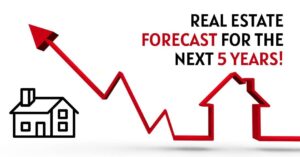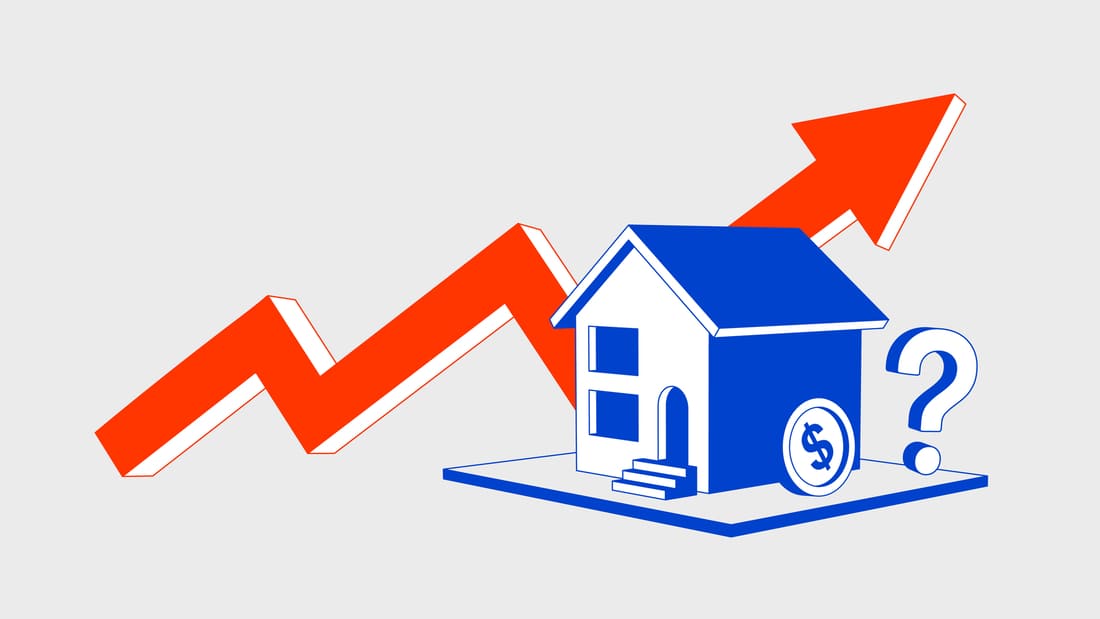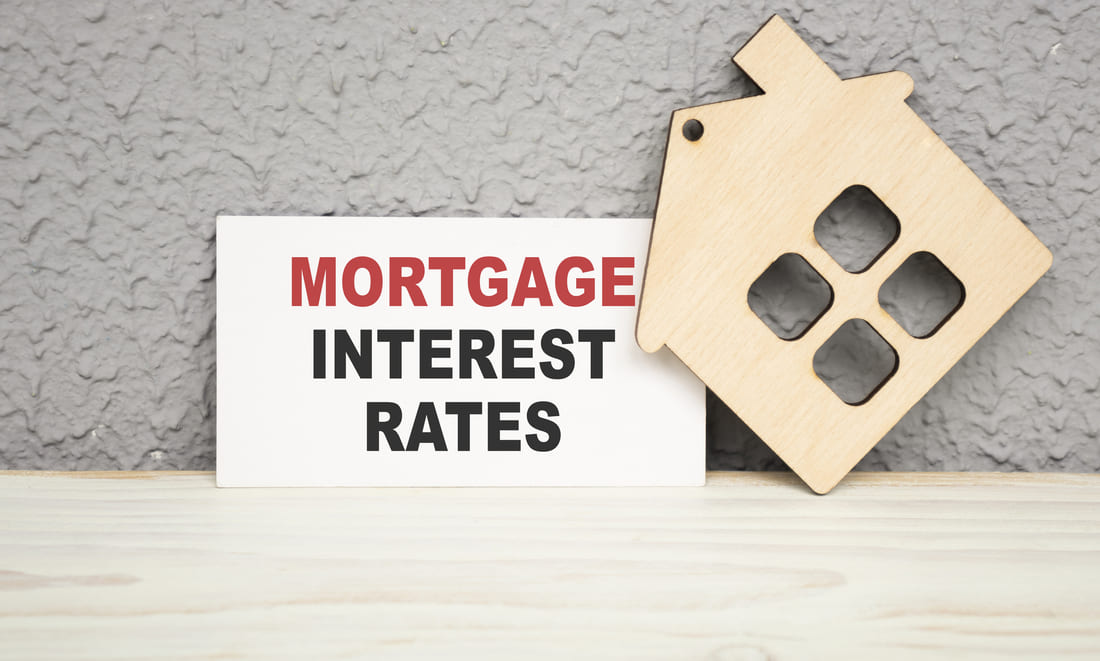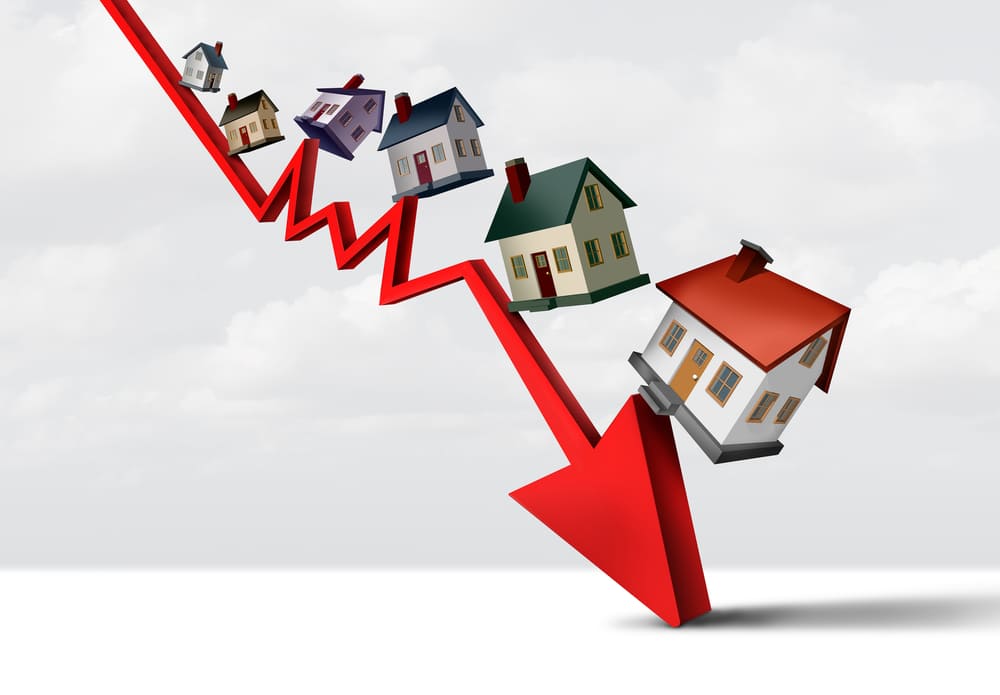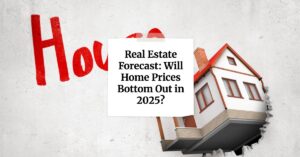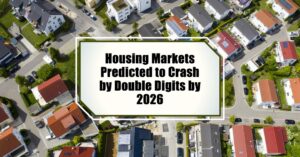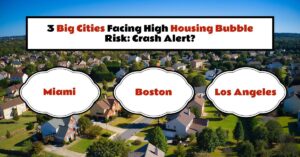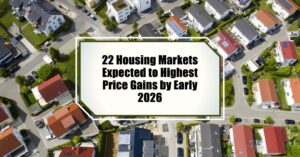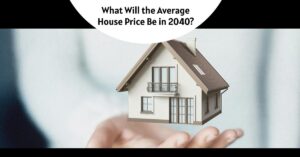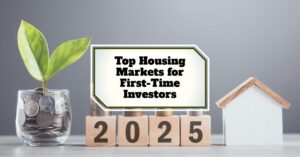The question on many minds, especially for those dreaming of their own slice of homeownership, is this: Is it a smart decision to buy a house in 2025? As we move into the latter half of the year, the housing market presents a complex picture, a mix of opportunities and challenges.
My honest assessment, considering the data and the current feel of the market, is that for those who are financially stable, plan to stay put for the long haul, and have done their homework, buying a house in 2025 can indeed be a smart decision, but it’s not a slam dunk for everyone.
The elevated prices and mortgage rates demand a cautious and informed approach. Let's dive deep into the factors you need to consider to make the right call for your personal situation.
Is It a Smart Decision to Buy a House in 2025?
To get a clear picture of whether buying a home in 2025 is right for you, we first need to dissect the current state of the housing market. It's not as simple as “prices are up” or “rates are high.” There are nuances and underlying trends that paint a more complete picture.
Home Prices: Cooling Down, But Still High
We've seen a significant surge in home prices over the past few years, and while the fever pitch might be subsiding, prices are still at historically high levels. According to the S&P CoreLogic Case-Shiller Home Price Index, while the year-over-year price increase in March 2025 (3.4%) was lower than February's 4%, we're still looking at hefty price tags. The median existing home sale price hit $414,000 in April 2025, marking a long streak of yearly increases.
Here's a quick snapshot:
- Median Home Sale Price (April 2025): $414,000 (+1.8% year-over-year)
- Home Price Growth (March 2025): 3.4% (down from 4% in Feb 2025)
- Typical Home Cost: $367,700 (based on Zillow data)
Interestingly, the market isn't uniform across the country. Some areas, particularly those with a lot of new construction, are seeing builders reduce prices. On the other hand, the South and Midwest continue to show strength, with some cities like Detroit, Cleveland, and St. Louis offering homes under $300,000. This regional variation is a crucial factor to consider.
Looking ahead, experts anticipate home price appreciation to slow down to around 2% in 2025, compared to a higher rate in 2024. This suggests a potential stabilization, but don't expect prices to plummet. Over the next five years, a roughly 17% increase from 2024 levels is still forecasted.
Mortgage Rates: The Affordability Hurdle
If high home prices weren't enough, mortgage rates have added another layer of complexity to the affordability equation. As of late May 2025, the average 30-year fixed mortgage rate hovered around 6.94% (according to Bankrate). We saw a dip in rates in September 2024, but they climbed back up in early 2025 and are expected to remain in the 6-7% range for most of the year.
Key points on mortgage rates:
- September 2024: 6.2% (lowest in 2024)
- Early 2025: >7% (spike due to economic factors)
- May 28, 2025: 6.94% (current average)
The Federal Reserve is projected to make a couple of rate cuts in 2025, but the immediate impact on mortgage rates might not be dramatic. A more significant decrease could potentially occur if the economy enters a recession, but that's far from a certainty. To put this in perspective, with an April 2025 rate of 6.81%, a typical home purchase would mean a substantial monthly mortgage payment, putting a strain on many potential buyers' budgets.
Housing Inventory: Slowly but Surely Improving
One piece of potentially good news for buyers is the improvement in housing inventory. By April 2025, the supply reached 4.4 months, a notable 20.8% increase compared to the previous year. While still below the 5-6 months considered a balanced market, it's a step in the right direction. In fact, inventory is up by over 33% from 2024 and is on track to reach pre-pandemic levels by the end of the year, according to some forecasts.
Important inventory trends:
- Housing Supply (April 2025): 4.4 months (+20.8% year-over-year)
- Inventory Growth (2025): +33% from 2024 (on track for pre-pandemic levels)
However, like home prices, inventory levels vary regionally. Areas with historically low inventory, such as the Northeast, are still largely seller's markets. Conversely, some Southern markets experiencing an increase in inventory are starting to lean towards being buyer's markets. More inventory generally means more choices for buyers and potentially less intense bidding wars, which is a positive development.
Home Sales: A Reflection of Affordability Challenges
The number of home sales provides another indicator of market health. Existing home sales saw a 2.0% year-over-year decrease in April 2025. A significant factor contributing to this is the “lock-in effect.” Many current homeowners have mortgages with significantly lower interest rates (a staggering 86% have rates below 6%). They are understandably reluctant to sell and take on a new mortgage at a higher rate, thus limiting the supply of existing homes.
Key data on home sales:
- Existing Home Sales (April 2025): -0.5% month-over-month, -2.0% year-over-year
- New Home Sales (April 2025): +10.9% month-over-month, +3.3% year-over-year (median price: $407,200)
- Pending Home Sales (April 2025): -6.3% month-over-month, -2.5% year-over-year
Interestingly, new home sales showed a positive trend in April 2025. This could be due to builders offering incentives or a reflection of the limited inventory of existing homes. Overall, the sales figures suggest a market constrained by affordability issues and the lock-in effect. While sales are projected to gradually increase in the coming years, 2025 is likely to remain a challenging environment for buyers facing these constraints.
The Affordability Crunch: A Historical Perspective
Let's be blunt: housing affordability is at a low point. Economist Robert Frick aptly noted that we're in historically challenging times for potential homebuyers. Consider this: in 2024, the median rent price was around $2,050. Compare that to the monthly cost of homeownership, which averages a hefty $3,800 (including those often-overlooked variable costs). That's a significant difference.
A quick affordability comparison (2024 data):
- Total Homeownership Cost (Monthly): $3,800 (includes ~$1,510 in variable costs)
- Median Rent Price (Monthly): $2,236 (roughly 30% less than owning)
- Typical Mortgage Payment (at 6.81%): $1,919 (for a $367,700 home with 20% down)
These numbers highlight the financial hurdle many face when considering homeownership in the current market. While the stability of the economy, with inflation at a manageable (though still above target) 2.3% in April 2025, is reassuring in terms of avoiding a market crash, it doesn't alleviate the day-to-day affordability pressures. It's also worth noting that while foreclosure starts have seen a year-over-year increase, they remain at relatively low levels overall, indicating that most homeowners are still in a stable financial position. Additionally, homeowner equity has seen significant growth, providing a financial cushion for many.
Policy and Politics: Unseen Hands Shaping the Market
We can't discuss the housing market without acknowledging the influence of political and policy decisions. For instance, policies from previous administrations, such as tax cuts and tariffs, can have lasting effects on the economy and, consequently, on mortgage rates. Tariffs, in particular, can increase the cost of building materials, adding thousands to the price of a new home. This uncertainty in material costs also presents challenges for builders. These are factors that are largely beyond individual control but contribute to the overall market dynamics.
Regional and Demographic Winds: Where and Who is Buying?
The housing market isn't a monolith. Regional trends play a significant role. As mentioned earlier, the South and Midwest are currently among the more active markets, offering relatively affordable options in various cities. Interestingly, suburban and rural areas have gained popularity, driven by the desire for more space and affordability – a trend that many experts believe will continue.
Demographic shifts are also shaping the market. The average age of first-time homebuyers has risen, now standing at 34 compared to 29 just two decades ago. This reflects the challenges younger generations face in saving for a down payment and navigating the high costs. It's also becoming increasingly common for first-time buyers to rely on financial assistance from family, particularly in high-cost areas. Finally, the ongoing housing shortage, estimated to be in the millions of homes, is a fundamental factor influencing prices and competition. Efforts to address this shortage through increased construction and adjustments in immigration policies will have long-term impacts.
Weighing the Scales: Pros and Cons of Buying in 2025
Now, let's get down to brass tacks. What are the potential benefits and drawbacks of making a home purchase in 2025?
The “Pros” Side of the Coin:
- Potential for Long-Term Appreciation: Despite the current slowdown, home prices are still projected to rise over the next five years. If you're planning to stay in your home for a significant period (5-7 years or more), buying now could lead to substantial equity gains down the road.
- Opportunity in Lower Inventory Markets: In some areas with limited housing supply, there might be less competition, potentially giving you more leverage to negotiate price or terms.
- A Relatively Stable Economic Foundation: While affordability is a concern, the overall economic stability, with low foreclosure rates and strong homeowner equity, reduces the risk of a major housing market downturn.
- Leveraging Existing Equity: Current homeowners who have built up equity can use it to their advantage when moving to a new home, whether upsizing or downsizing.
The “Cons” Side of the Equation:
- High Mortgage Rates Eating Into Affordability: The current mortgage rates in the 6-7% range significantly increase the cost of borrowing, making monthly payments a substantial burden for many.
- Record-High Home Prices Presenting a Barrier: The median sale price remains high, particularly challenging for first-time buyers trying to enter the market.
- Uncertainties in the Economic and Policy Landscape: Factors like ongoing tariffs, potential policy changes, and persistent inflation could keep mortgage rates elevated or introduce further volatility into the market.
- Regional Market Risks: Overheated markets might not offer good long-term value, while markets experiencing a cooling trend could see short-term price dips.
Personal Considerations: The Most Important Piece of the Puzzle
Ultimately, the decision to buy a house in 2025 hinges on your individual circumstances and long-term goals. Here are some crucial personal factors to consider:
- Financial Stability is Paramount: Do you have a stable income, a healthy credit score, and sufficient savings for a down payment (ideally 20% to avoid private mortgage insurance) and closing costs? In this high-cost environment, a solid financial foundation is non-negotiable.
- Long-Term Commitment to the Area: If you plan to live in the area for at least the next 5-7 years, buying is generally considered a better long-term investment, allowing you to ride out any short-term market fluctuations.
- The Rent vs. Buy Dilemma: In many areas, renting is currently more affordable than owning on a monthly basis. If you're unsure about your long-term plans or need more time to save, renting might be a more prudent option. Carefully compare local rent and mortgage costs.
- Thorough Local Market Research: Don't just look at national averages. Dive deep into the specific market you're interested in. Are prices rising or stabilizing? Is inventory increasing? Affordable markets or suburban areas might offer better value than expensive urban centers.
Looking Ahead: Market Outlook and My Recommendations
Based on the current trends and expert opinions, here's my take on the short-term and long-term outlook, along with some recommendations:
Short-Term (Rest of 2025): Stable but Challenging
I don't anticipate a major housing market crash in 2025. The fundamental factors of relatively low supply and solid homeowner equity provide a degree of stability. However, I also don't foresee a significant improvement in affordability this year. Mortgage rates are likely to remain in the 6-7% range, and while inventory is improving, prices are expected to stay elevated. Competition will likely persist in desirable locations.
Long-Term (2025-2029): Gradual Growth
Over the next few years, I expect home prices and sales to experience moderate growth, with rents also on an upward trajectory. The housing shortage will likely ease gradually as more new construction comes online. However, factors like tariffs, immigration policies, and the increasing costs associated with climate change could all have an influence on the market.
My Recommendations for Potential Buyers:
- If You're Truly Ready: Don't wait for some mythical “perfect” market condition. If your finances are in order, you've found a home that meets your needs and budget, and you plan to stay for the long term, then buying now could be a sound decision that allows you to benefit from future appreciation. In markets with rising inventory, don't hesitate to work closely with a real estate agent to negotiate effectively.
- If You're Feeling Uncertain: There's no shame in hitting the pause button. Consider renting to give yourself more time to save, improve your financial situation, or see if mortgage rates potentially decline. However, be aware that delaying too long could mean facing higher home prices down the line.
- Explore Beyond the Obvious: Be open to exploring more affordable markets, even if they're a bit outside your initial target area. Cities like Cleveland or up-and-coming suburban regions might offer significantly better value.
- Seek Professional Guidance: This is a big decision, so don't go it alone. Consult with a trusted financial advisor and an experienced real estate professional who knows your local market inside and out. They can provide personalized advice based on your unique circumstances.
In Conclusion: An Informed Decision is a Smart Decision
So, coming back to the original question: Is it a smart decision to buy a house in 2025? The answer, as you can see, isn't a simple yes or no. For those who are financially secure, committed to staying in the area for the long term, and prepared for the current market realities of higher prices and mortgage rates, purchasing a home in 2025 can indeed be a smart move with the potential for long-term financial benefits and the personal satisfaction of homeownership. However, it demands careful consideration, thorough research, and a realistic understanding of the current market conditions. Take your time, do your due diligence, and make an informed decision that aligns with your individual circumstances and aspirations.
Invest in Real Estate in the Top U.S. Markets
Discover high-quality, ready-to-rent properties designed to deliver consistent returns.
Contact us today to expand your real estate portfolio with confidence.
Contact our investment counselors (No Obligation):
(800) 611-3060
Also Read:
- 5 Best Places to Buy and Sell a House in Spring 2025
- Housing Market: 2025 is the Best Time for Homebuyers in Years
- Month of May is the Best Time to Sell Your House in 2025
- Is It a Good Time to Sell a House in 2025?
- Should I Sell My House Now or Wait Until 2026?
- Should I Buy a House Now or Wait Until 2025?
- Best Time to Buy a House in the US: Timing Your Purchase
- Is Now a Good Time to Buy a House? Should You Wait?
- The 2025 Housing Market Forecast for Buyers & Sellers
- Why Did More People Decide To Sell Their Homes in Fall?
- When is the Best Time to Sell a House?
- Is It a Buyers or Sellers Market?
- Don't Panic Sell! Homeowners Hold Strong in Housing Market

